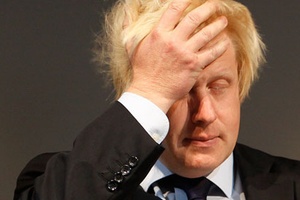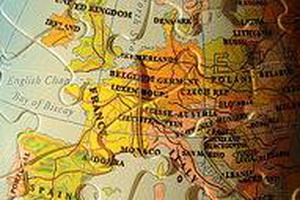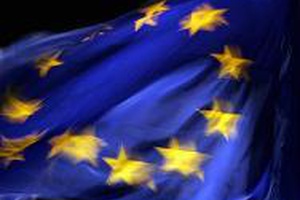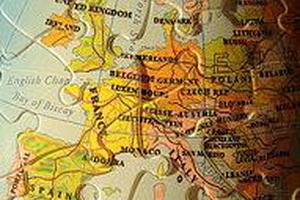-
11 mars 2016
Boris Johnson, tea bags and the complexity of law

Boris Johnson, in his plea for Brexit, develops the familiar theme of excess of niggling and stupid standards coming from Brussels. But the proliferation of legal texts is not to be blamed on the European Union. It reflects the tensions between conflicting aspirations of a complex society, the demand for ever greater security and the refusal of any hazard. lire la suite
-
23 novembre 2011
Can Technocratic Government be Democratic?

The resignations of Papandreou in Greece and Berlusconi in Italy, replaced by technocratic governments, have raised questions about the democracy of technocracy. These questions only gain in intensity when we add the EU Commission’s increasing powers of surveillance of member states’ national budgets, let alone those of the Troika (IMF, European Central Bank, and EU Commission) when it comes to eurozone member states that have had recourse to loan bailouts (Greece) or to the European Financial Stability Facility (EFSF). The answers to such questions are mixed. Berlusconi's replacement with a technocratic government—precipitated primarily by global market pressures—may actually be a sign of democracy at work. Papandreou's replacement—precipitated by the pressures of the eurozone powers and Papandreou’s own ill-advised gamble on ‘direct democracy’—depends upon how things play themselves out. As for the technocratic governance of the EU, this is where the democracy deficit may be greatest. lire la suite
-
12 avril 2011
The trouble with the European Stability Mechanism

The meeting of the European Council on 24-25 March focused on shoring up the battered Eurozone infrastructure through the European Stability Mechanism. This column argues that the mechanism is seriously flawed. It says it is unlikely to withstand the shock of a severe financial crisis and may even spread the damage to high-debt countries, while leaving the Eurozone in the grip of paralysing vetoes. (in French; English version available on VoxEU) lire la suite
-
5 novembre 2010
EU: tax harmonization in sight?

Led by EU Commissioner Algirdas Šemeta, the new Tax Policy Group brings together personal representatives of EU Finance Ministers to discuss key tax policy issues. The Group aims to work on fundamental topics such as how taxation can contribute to a stronger Internal Market, to the growth and competitiveness of Europe's economy and to a "greener" economy. It will also serve as a forum for deeper discussion on priority matters, such as financial sector taxation, common consolidated corporate tax base and the new VAT Strategy. What are the prospects for tax harmonization? (in French) lire la suite
-
29 septembre 2010
EU: new ways of the small and middle economies

A quick trip through the Czech Republic, Sweden, Slovakia and Poland offers curious impressions of economic situation. All these countries are seeing a fast economic recovery of around 4 percent this year, and the contrast could hardly be greater to the current US depressed mood. Unemployment is the main concern but bubbles are on their way. One can also wonder about the policies carried in these countries whose leaders speak a new language. lire la suite
-
22 septembre 2010
‘Roma crisis’ and EU’s neighborhood

In a spectacular move, France, a founding member State, has been sharply criticized by European MPs over its Roma expulsion policy. Since the beginning of the crisis, President Sarkozy is standing firm on its tough immigration policy, in spite of a wave of criticisms both within France and abroad. Starting as a French issue, it has had an impact on the French-Romanian relations, two traditional allies. At a European level, it may be not without serious implications for a country like Ukraine, which seeks a prospect of integration within the EU. (in French) lire la suite
-
19 juillet 2010
EU economic governance needs more democracy

May 2010 will go down in history as the beginning of greater economic solidarity in the European Union as a result of the one-two punch of the Greek loan agreed on May 3 and the massive loan guarantee mechanism of May 9-10. But what shape that union will take remains unclear. German Chancellor Merkel wants more governance by rules, to enshrine restrictive budgetary discipline and draconian punishments for violators. French President Sarkozy wants more governance by leaders, with Eurozone countries to form a kind of economic government that determines Eurozone policy on an on-going basis. Neither will work, the first because it is too rigid as well as economically problematic, the second because it is too flexible as well as politically problematic. Neither, moreover, is very democratic. lire la suite
-
16 juillet 2010
EU: let's create independent, national budget committees

The sovereign debt crisis revealed the institutional weaknesses of fiscal policies in Europe. To an institutional weakness, it must be given an institutional response. How? We propose the creation of independent, national budget committees, as well as a European committee that would evaluate, on the basis of the information provided by the national committees, the impact of national fiscal policies for the Eurozone. Comparable to the European organization of competition or financial regulation, such an architecture would preserve national sovereignty in fiscal policies while offering a European diagnosis on the economic policy. (in French) lire la suite
-
18 juin 2010
A Downgraded Europe?

In 2007, a group presided by Felipe González was set up to write a report on “the future of Europe”, which was delivered to the European Counsel on June 17th. One understands that right now the priorities may be concentrated on finding parades to the attacks of the markets, rather than to envision the distant future of the Union. But this report is capital in more than one way. First because the relief that followed the signature of the Lisbon Treaty gave place to the question of what to do in the next twenty years. Second because the financial crisis obviously imposes to reform the European model of governance and the European policies. (in French) lire la suite
-
17 février 2010
When Ukraine meets with China

No wonder that Ukraine remains a country profoundly torn between a pro-West and a pro-East vector, i.e. EU and Russia. Beyond this oft-described black-and-white opposition, the striking geopolitical reality for the coming years may not be the swing toward one or the other pole, but rather the arrival of China as a central player in the EU neighbourhood. lire la suite
-
15 février 2008
Normative Empire

On October 25th 2007 the Wall Street Journal published a blistering attack on Europe entitled “Regulatory Imperialism”. The editorial took issue with Europe’s intent to force its norms on the rest of the world by taking advantage of the dynamism of its internal market both affluent and attractive and in addition highly organized. Examples cited included the Microsoft Affair, the ban on the importation of chlorine-rinsed poultry, the Reach legislation on chemical products, as well as the plan to tax airline companies as part of the battle against climate change. lire la suite
-
30 juin 2007
EU Foreign and Security Policy with the Mini-Treaty

The prescriptions of the 2004 Constitutional Treaty which proved to be the least controversial were, paradoxically, those in the field of the common foreign and security policy (CFSP). The arrangements agreed to in Berlin last weekend represent little change from the 2004 text. The most important elements are the creation of the new post of “High Representative”, the post of President of the Council and the development of a European diplomatic service. These measures will not, by themselves, turn the EU into a new type of international power-broker, but they will help the Union formulate joint policy and, above all, will assist in the coherent presentation of that policy to the outside world. lire la suite
-
30 juin 2007
The European Treaty: why France wants to move quickly

The election of Nicolas Sarkozy as President of the French Republic has been widely regarded as the signal of a shift in France’s policy towards Europe. In a campaign where European issues were conspicuous by their absence, Mr Sarkozy was by far the clearest of all the principal candidates regarding his ideas for the EU. A quick fix was needed to overcome the stalemate created by the French and Dutch rejection of the draft constitutional treaty. Turkey, as an Asian country, had no justification to join the EU: instead, a type of “privileged partnership” had to be established to anchor this country to the Union. Having settled these two thorny issues, Europe should then focus on topics that matter most to ordinary citizens, such as how to create growth and jobs. lire la suite
-
24 mai 2007
Where is the end of the EU-rope?

Formal criteria don’t define the limits of Europe; they only delay the membership of determined applicants. The true limit is the EU’s capacity to absorb newcomers. Eastern enlargement challenged this capacity, but the forthcoming institutional reforms that allow the EU27 to function will – quite inadvertently – make it easier to enlarge the EU further. EU42 anyone? lire la suite
-
19 mars 2007
Treaty of Rome: the bud that unfolded into the European Union

The EU started life in circumstances that are almost unimaginable in today’s world. These irreproducible circumstances led to the creation of supranational institutions and rules – the 1957 Treaty of Rome – that are central to almost all of the EU’s difficulties as well as much of its strength. It also accounts for the fact that European integration has rarely stalled or been reversed. lire la suite
-
11 janvier 2007
Europe Needs Policies on Russia and Energy
A year ago, the European Union was at a loss when Russia cut gas supplies to Europe through Ukraine and thus to Europe. Exactly one year later, Russia cuts oil supplies to Europe through Belarus, and the EU is equally lost. Seldom haws Russia so clearly displayed its principles. It is time for the EU to adopt policies on both Russia and energy. Otherwise, the cost of Europe's disorientation may grow exponentially. -->Russia is a market economy, and even its state sector is highly commercialized. In the last few years, the Kremlin has successfully focused on boosting the price of Gazprom stocks, rendering it the third most valuable publicly traded company in the world. Part of this endeavor has been to abolish political subsidies to friendly former Soviet republics and let gas and oil prices approach market prices. Belarus was the last country to enjoy oil subsidies from Russia, and now they are gone. lire la suite
-
30 novembre 2006
A Stronger Euro Would Not Help Reforms
As currency markets start to question the soft landing scenario for the US economy and are impressed by growth prospects in Europe, the volatility of exchange rates is increasing and the euro is on the rise, both on a trade weighted basis and against the US dollar. Whether the rally will last or not is a relative issue. Assuming that the US housing market downturn remains contained and does not spread over the whole US economy, markets should be mostly sensitive to the news flow from Europe. In this regard, the latest batch of business surveys, starting with the Ifo index, was bullish for the European currency. So was the conspicuous silence of ECB's President Jean-Claude Trichet who, although repeating that Asian currencies should be more flexible, has not commented on the recent strength of the euro. lire la suite
-
15 novembre 2006
De-constructing the European Union's 'absorptive capacity'
The tendency in some political discourse now is to say that, because the Constitution that was meant to prepare for enlargement failed to be ratified, this shows that the enlargement process has now hit a roadblock called 'absorptive capacity', with the European polity suffering from a malady called 'enlargement fatigue', and therefore it would be best to call a stop and define the EU's 'final frontiers'. lire la suite
-
3 novembre 2006
Why Eastern Europe is turning anti-liberal?
Right wing populists in Poland and left wing populists in Slovakia now run the government in alliance with extremist nationalist parties. In Budapest the main opposition party Fidesz calls its supporters to demonstrate in front of Parliament for the resignation of a government on the very day the Parliament had confirmed in a confidence vote the political outcome of the elections of last May. In contrast, in Prague, a minority right wing government that has not gained a confidence vote in Parliament after five months of bickering and mobilizing against the «communist threat» is carrying out a widespread purge of the upper echelons of public administration. Last but not least, the Bulgarian entry into the European Union has been heralded by turning the presidential race into a confrontation between an ex-communist (who claims to like the EU) and a proto-fascist (who says he hates Turks, Gypsies and Jews).Why is it so ? lire la suite
-
11 septembre 2006
Why multiculturalism should not be abandonned
In an article published in the Observer newspaper recently, a reporter writes of his visit to a local mosque. It was not just any mosque, but one frequented by some of the British Muslims held by the police in the plot to bring down several transatlantic planes. The reporter talks of meeting two TV teams at the mosque. One, from the US, came to try to find out why the UK is a hotbed of Muslim violence; the other team, which was French, was there to report upon the collapse of the British model of integration. lire la suite
-
Page 1 sur 2 1 2
telos
Recevez nos articles dès leur publication
fermerVous appréciez nos articles ?
Vous aimez en ce moment
-
- Les origines sociales et le QI des inventeurs 3 jan. 2018
- Les classes sociales: permanence et renouveau 2 jan. 2018
- Emmanuel Macron: Bonaparte au pont d’Arcole et en même temps Saint-Louis sous son chêne? 4 jan. 2018
- De quoi l’autoritarisme des mouvements populistes est-il le nom? 5 jan. 2018
- Brexit: être Européens pour deux 21 déc. 2017
- Le labyrinthe catalan 22 déc. 2017
